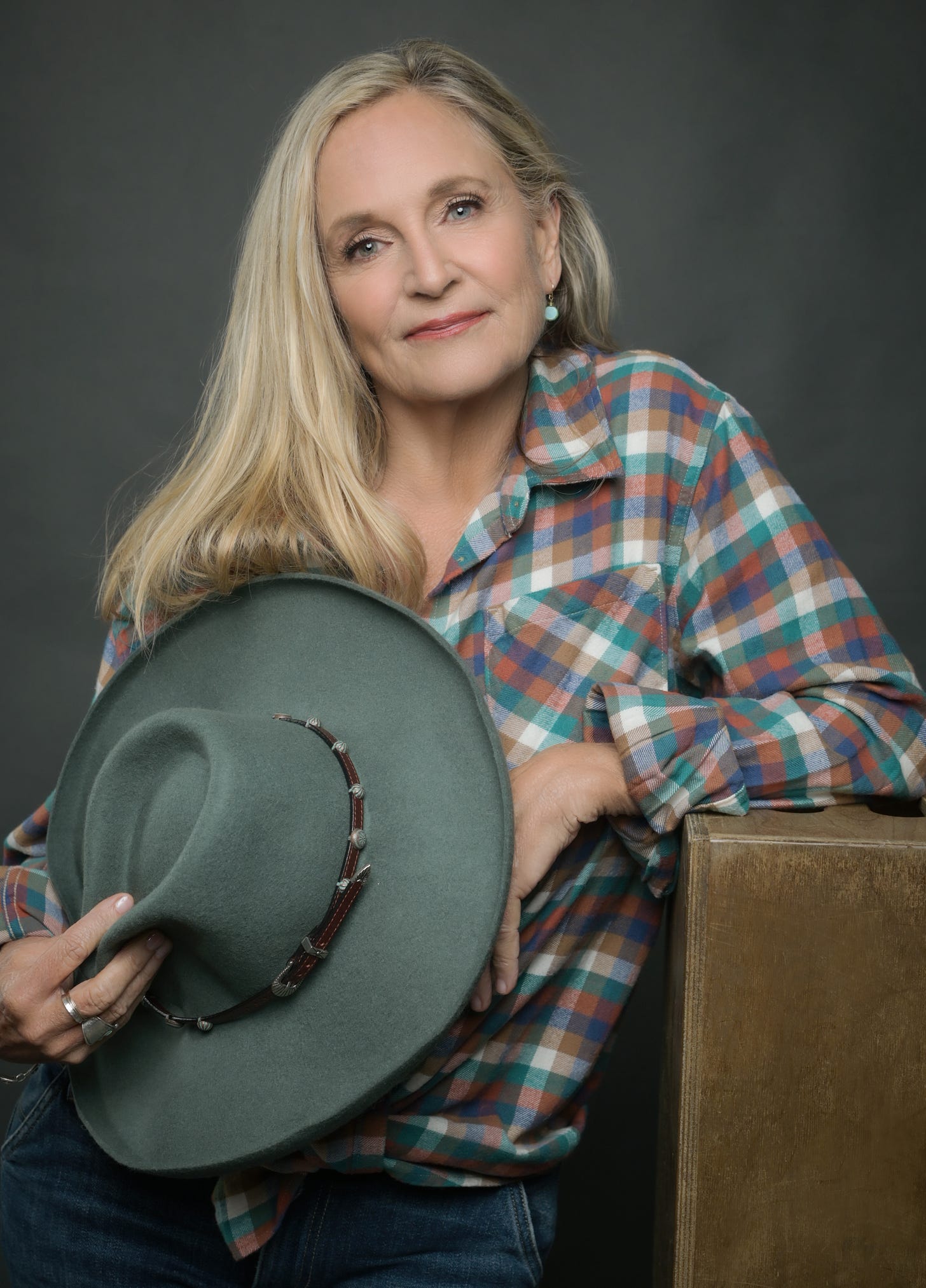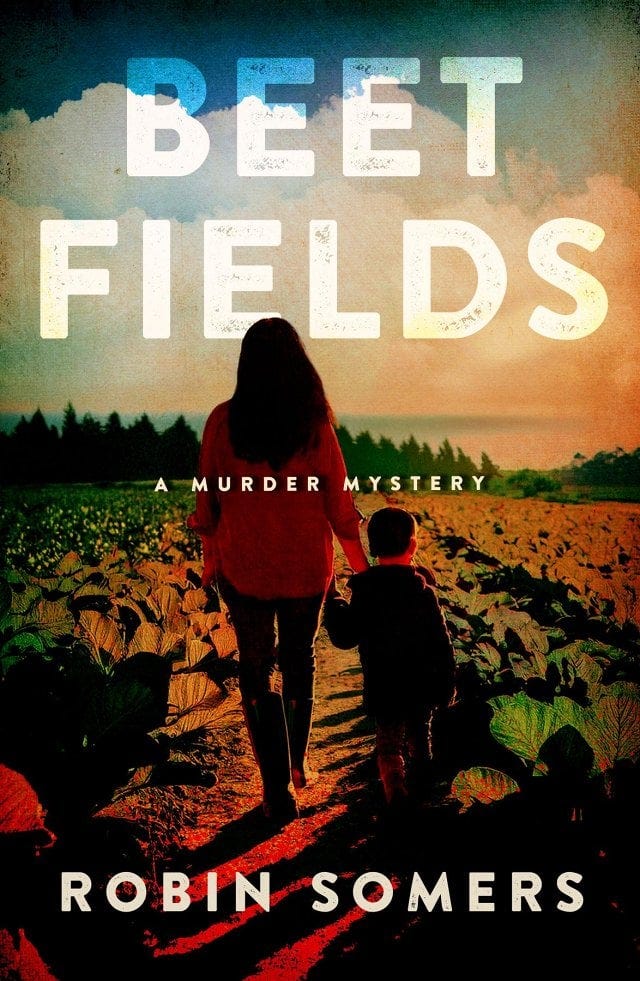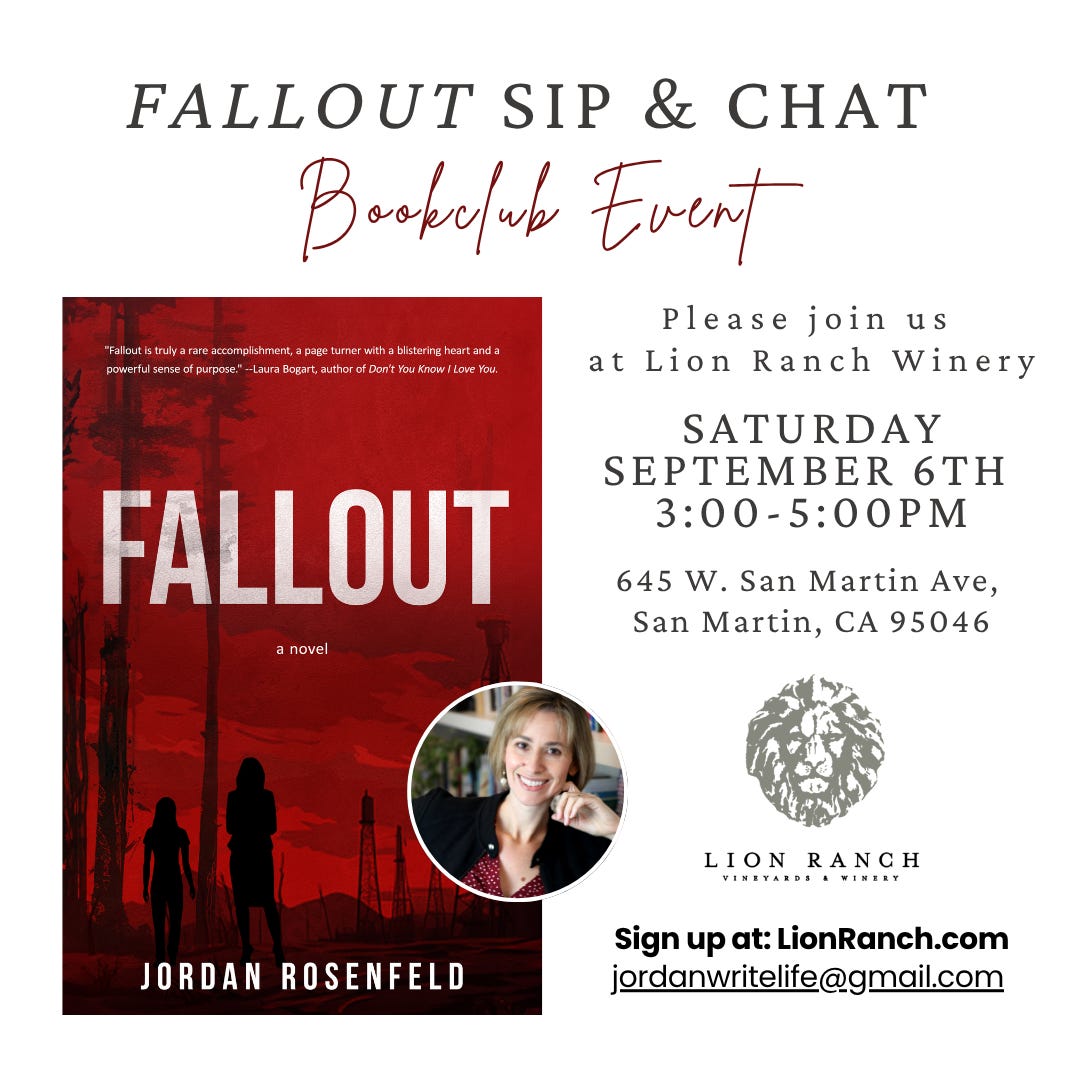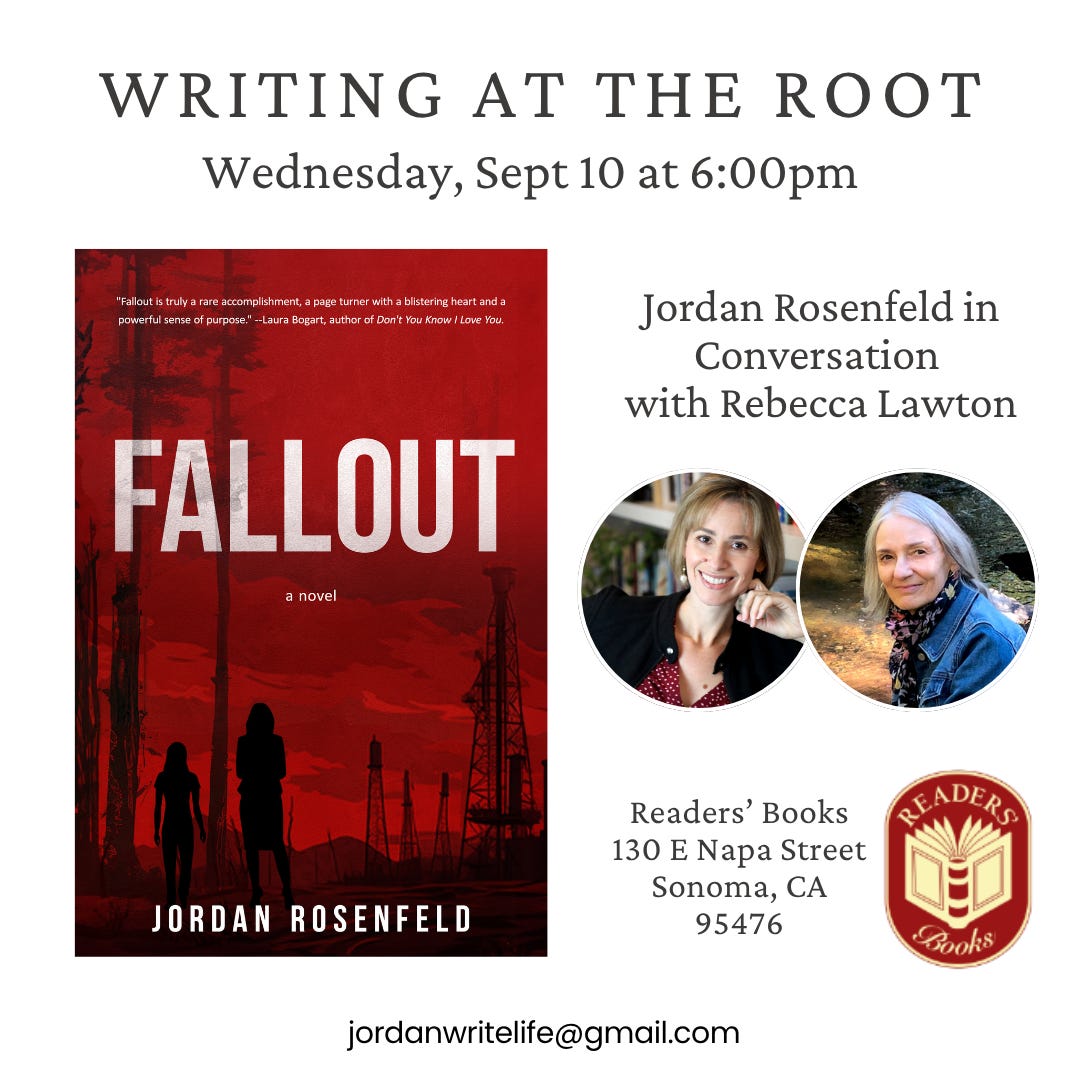Writing Toward Justice
An Interview with Robin Somers on environmental justice, fighting patriarchy and publishing books at age 76
This interview has been edited for length.
Robin Somers is a former reporter from Sonora, California and author of the mystery Beet Fields, inspired by her son’s organic farm, and Eleven Stolen Horses, a Wild Horses Mystery (2024). Her second book in the series, Three Marys, is forthcoming in Spring, 2026. She lives near the beach with her new/old husband Dennis and their Havanese, Buster.
Her books are published by Sibylline Press, a dynamic publishing house dedicated to showcasing the literary talents of women authors over the age of 50.
About Beet Fields, a murder mystery
Olive Post’s bucolic farm life is already off kilter when she finds a body in the beet field and suspects foul play.
When the coroner determines the death a suicide, her investigative instincts kick in. Her tenacious pursuit of evidence strains her marriage and places her young children in danger as she uncovers an ominous scheme that threatens her family and their livelihood.
Set on an organic farm in Santa Cruz, California, Beet Fields underscores the importance of vigilance in an era of insatiable corporate agribusiness. With unfaltering determination and courage, Olive confronts malevolent forces and struggles to restore the constancy in her home that she has worked diligently to create.
Q: Tell me about Beet Fields. What excites you about it or did so in the writing process?
Beet Fields was born out of a burning desire, an exasperated yearning, for social and environmental justice and an urgent need to speak for one of so many beautiful pieces of fertile land threatened by developers. It’s a story that champions the land and the farmers and farm workers who steward it.
So, this is a serious sounding book. I’m writing it and in comes Ariela, a New Age Susan Sarandon whose voice came to me so naturally I want to keep writing about her exploits. She drives her daughter Olive, the book’s protagonist and moral center, crazy, but readers love Ariela and so do I. She’s a no holds barred, free-spirited woman who will not be repressed by the patriarchy and is completely unapologetic for her beliefs and actions. Go, Ariela!
Q: What do you hope readers will take away from it?
There’s a great apple pie recipe in Beet Fields that serves a dual purpose. Literary device for sure in its sensory detail and as a metaphor for order. You can’t bake a good pie in the middle of personal chaos. A recipe also creates a third dimension that reaches out from the page to the reader and says, “try me.” This apple pie recipe was a research project that drew me to a pie eating contest at an organic farm. I talked to the woman who won the contest and clipped her recipe from a subsequent newsletter story. I asked organic apple growers at the farmer’s market what the best apples were for pie, and then I tested the recipe in my own kitchen. So good. I’d love to hear from readers who take out their rolling pin and pie tins to give the Beet Fields apple pie recipe a try.
On the heavier side of the question…I see organic farmers as today’s saints. They grow food without chemicals, starting with growing healthy soil and planting organic seed or seedlings.
They respect rather than exploit farm workers and fight for social justice on their behalf. I hope readers will understand that GMO-free foodsheds require vigilance on the part of each of us at the local level. Our vote counts, beginning with city council and county supervisors because they have the power to allow or ban GMOs. Likewise, in Eleven Stolen Horses, I want readers to become aware of the beauty of our wild horses in our still natural western landscape, and the horses’ right to remain free on federally protected lands.
Q: What do you fear they might take away?
On the fear side of the equation, I develop quite a few unsavory male antagonists. In Beet Fields it’s men who grow GMO foods and treat their adult children as badly as the land they abuse, with tragic results. In Eleven Stolen Horses, it’s men who cruelly round up wild horses by helicopter and on horseback and drive them into captivity or worse, toward death. This isn’t fiction, but reality, and lest my readers think I’m a misandrist, my books have some really good guys. I love Leonard Parker in the Wild Horses mystery series. Read and you’ll understand why! I love California Post, the organic farmer. Easton Jode, the romantic cowboy in Eleven Stolen Horses is a good guy to the degree a wounded woman can learn to trust herself and men, again.
Q: Tell me about your creative process. Are there any tools, practices, rituals, influences that go into creating for you?
I, like so many writers, switch into a different plane of existence once I begin to write. Getting to the keyboard is an entirely different matter. Ritual helps. The closest to a ritual in my process is the 1 p.m. writing drop in with my NorCal Sisters in Crime. This is a tremendous tool that gives me permission to do my daily chores, wash dishes, buy groceries, take a brisk walk, buy new shoes. I can talk to a grandkid or help my husband pay a bill. Or I can write. The point is I can focus on all that life without the guilt of not writing distracting me from being present because I know at 1 p.m. I’ll get my chops in.
What I’ve learned is I must know myself and honor her, even if I wish I had more discipline and did things differently. I don’t fight who I am anymore and that works…I’m not an outliner. My brain doesn’t work that way. If I ever do outline, it’s after the first good draft so I can see where the highs and lows of the story are and need to be adjusted. …Today, I have a loyal writing group. We’ve met weekly—even through COVID—for ten years. We write in different genres. We have different objectives.
Q: If you are at or near midlife—how is this time of life affecting you?
I appreciate my evolution of writing from the solitary effort of a 37-year-old woman with a vodka tonic at her elbow to a communal affair among women at every stage, in touch with a higher power. Right now, as a published author at 76…This is the best time in my writing life. The pinnacle. Three books are swirling about my universe and there’s a fourth on the horizon. Yet, this is the worst time in my personal life. As I write, my husband is battling cancer (pancreatic neuroendocrine tumor PNET) and adjusting to a daily chemo pill which is physically and emotionally kicking his sweet behind. I rally between a readiness to give up everything but him—the horses, the writing, the book clubs, the travel—just be near him. However, he’s indefatigable and still gets up and goes to work building and remodeling one project or another when he has the energy, which is most days. …Wish me luck.
Learn more about Robin and her books:
Website: https://www.robinsomers.com
Facebook: https://www.facebook.com/robin.somers.16
Instagram: somers_r
TikTok: horseygrandma
American Wild Horse Conservation
September Events
I’m very excited about September book events!
Sept. 6, 3 to 5 p.m. Fallout Sip + Chat (see graphic below) at Lion Ranch Winery in San Martin. A $10 ticket gets you guaranteed admission and a glass of wine!
Sept. 10. 6pm. “Writing at the Root.” I’ll be in conversation with
at Reader’s Books, Sonoma (graphic below).Sept. 21, ALL DAY. Brooklyn Book Festival with the Sibylline Press booth!
Sept. 26-27, Central Coast Writers Conference.
September 6, 3 to 5 pm. Lion Ranch Winery. Sip + Chat. Join me at the gorgeous Lion Ranch Winery in San Martin as we chat, talk books, play literary games and sip wine. A $10 ticket gets you guaranteed admission and a glass of wine!
FURTHER EVENTS
Oct. 25: Elk Grove Writers Conference, 9am.
Oct. 25: Litquake.
Nov. 8: Portland Book Festival
What you can do for an author:
Purchase our books
Review our books
Tell others about our books!
Purchasing books supports not just me, but the entire small press machinery behind me, including Running Wild Press and Sibylline Press.








This sounds so good!
Love this!